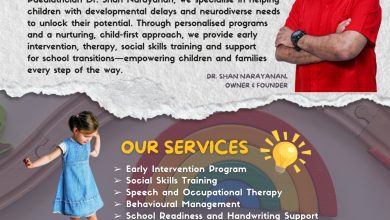Child Health
By Dr Shan Narayanan
Consultant General Paediatrician
“Life is really simple but we insist on making it so complicated.” — Confucius.
Babies lead a simple life. They eat, sleep and fill the nappy. This is their job. However for young parents it can be very daunting. Caring for a newborn baby is a full time job thus understanding the needs of the newborn makes their care less complicated. In this article, we look at the feeding of a newborn baby.
Newborn babies can be breastfed and/or formula fed. Breast milk is the ideal form of nutrition for babies. Breast milk is the perfect food for a human baby’s digestive system. It contains the vitamins and minerals that a newborn requires, and all of its components – lactose, protein and fat are easily digested by a newborn’s immature system.
Breastfeeding requires a substantial commitment from a mother. It also meets a variety of emotional needs for the mother and baby. It burns calories and helps shrink the uterus, so nursing mothers get back in shape quicker.
Maternal health both physical and mental health, is key to successful breastfeeding. Mothers, need to be calm and relaxed. It is important they eat a healthy diet, drink plenty of fluids and rest as much as possible.
During the first few days after delivery, mothers produce colostrum, thick and yellowish or thin and watery. Colostrum contains antibodies that help protect infants from a wide variety of infectious diseases.
After about 3 to 4 days of nursing, the breasts will start to feel less soft and more firm as milk is produced. The milk supply is determined by the stimulation the body receives. The more one breastfeeds, the more milk the body produces. If possible, nursing is started straight after delivery or within an hour after the birth. This timing takes advantage of the newborn’s wakefulness as they will spend the rest of the day sleeping. If the mother is unwell or has had caesarean section this may not be possible.
It s important that that baby latches with a wide-open mouth and takes as much as possible of the mother’s areola (the dark-coloured area of the breast) in his or her mouth (not just the tip of the nipple). Mothers may need support in getting babies to latch onto them. This may come from the elders in the family or the midwife who has attended the delivery. In some institutions they have a lactation consultant that advises mothers on breastfeeding.
Sometimes, mothers with inverted nipples have difficulty with feeding. Mothers should avoid using pacifiers and bottles as these are known to cause “nipple confusion” and the baby may give up on breastfeeding.
When one is breastfeeding, one can’t measure the amount of milk the baby drinks during each feeding. If the baby is having four to six wet nappies per day and gaining weight then the baby is getting enough.
Sometimes, mothers are unable to breastfeed as they may be unwell, had a difficult delivery or a caesarean section. In these instances, babies are fed with formula milk till the mother is well enough to breastfeed. Finally, it is the choice of the mother whether she wants to breastfeed or formula feed her baby.
“A newborn baby has only three demands. They are warmth in the arms of its mother, food from her breasts, and security in the knowledge of her presence. Breastfeeding satisfies all three.” — Grantly Dick-Read
For more information, call Dr Shan’s clinic at Hospital Fatimah 05-546 1345 or email shaniea02@gmail.com.


